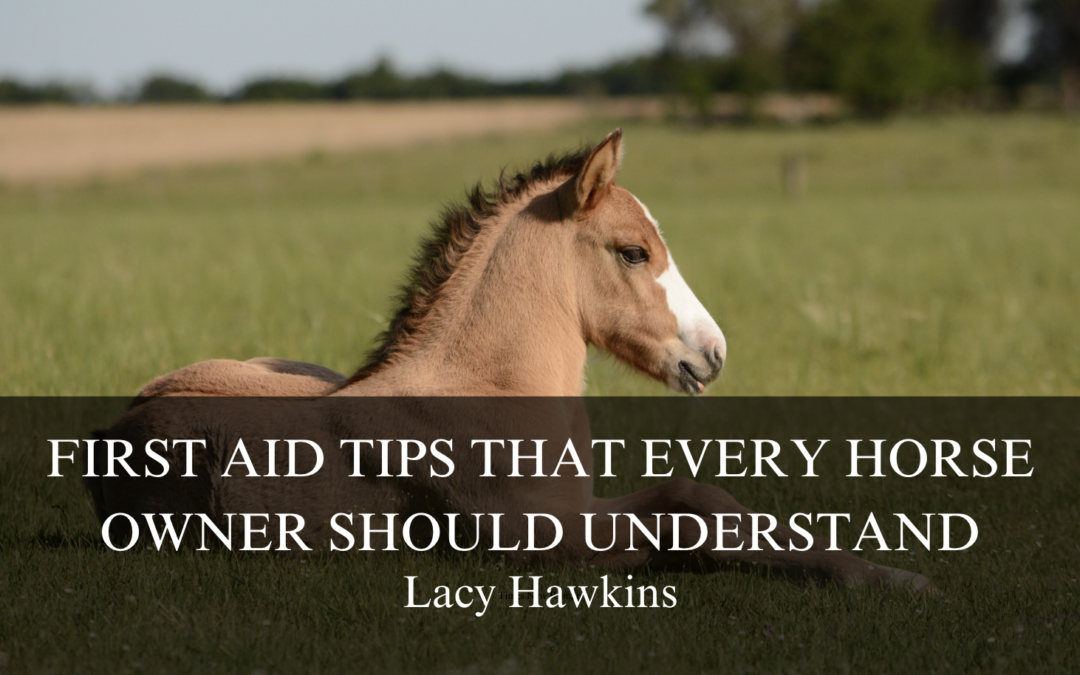As a horse owner, you want what is best for your four-legged friend. For this reason, it is important to be prepared for any situation that may arise, including medical emergencies. This means taking the necessary steps to stay informed and prepared in the event of an accident. Knowing how to assess and treat a horse’s illness or injury is a critical first-aid skill that all horse owners should possess. The following are five first-aid tips for horses that every horse owner should know.
Taking Temperature: Oftentimes, a fever is the first sign that your horse is sick and needs immediate veterinary attention. To make the task of temperature taking easier, consider keeping a few digital thermometers around the barn since they can get accurate reads more quickly than your standard glass thermometer can. However, make sure that you have good batteries around the barn if you opt to go the digital route.
Bandaging and Wrapping Legs: Being able to bandage and wrap your horse’s legs properly is a crucial first aid skill. Wrapping legs incorrectly can actually cause injury, so practice your wrapping skills until you can confidently wrap legs.
Taking Pulse and Respiration: It’s important to be able to take your horse’s pulse and respiration rates. Respiration rate can be taken by simply watching the flare of your horse’s nostrils while taking a pulse can be more difficult. Practice finding your horse’s pulse under his jaw ahead of time.
Cleaning and Treating Wounds: Most horses will scrape themselves at some point, and you need to know how to take care of these injuries properly. Learn how to clean, assess, treat, and possibly bandage a cut or wound from an experienced horse person.
Recognizing Medical Emergencies: One of the most important first aid skills that any horse owner should have is the ability to recognize when a situation is a medical emergency. All horse owners should learn how to recognize the signs and symptoms of colic, shock, heat stroke, infection, and choking. Knowing when it’s time to call the vet can give your horse the best chance at a complete recovery.
By brushing up on your equine first aid skills, you can be prepared for any medical emergency that may arise. With practice and vigilance, you can ensure that your horse will remain healthy and safe for years to come.
